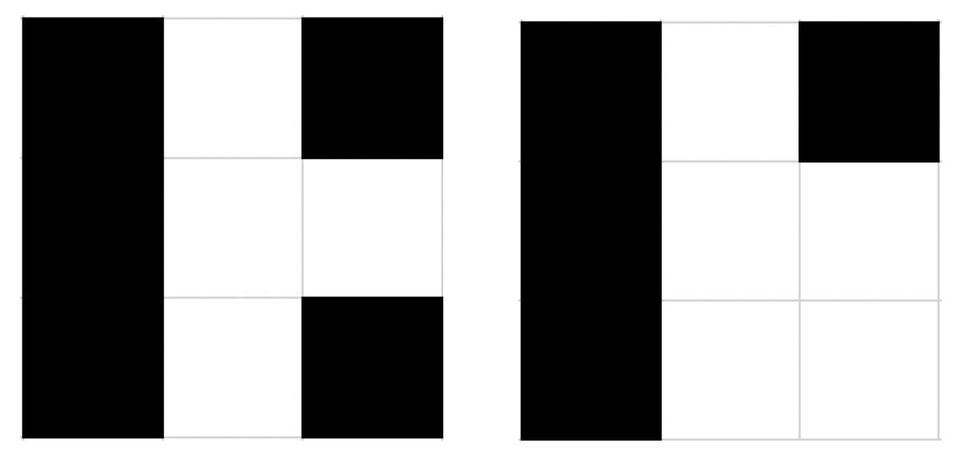Young boy Artem tries to paint a picture, and he asks his mother Medina to help him. Medina is very busy, that's why she asked for your help.
Artem wants to paint an n×mn×m board. Each cell of the board should be colored in white or black.
Lets BB be the number of black cells that have at least one white neighbor adjacent by the side. Let WW be the number of white cells that have at least one black neighbor adjacent by the side. A coloring is called good if B=W+1B=W+1.
The first coloring shown below has B=5B=5 and W=4W=4 (all cells have at least one neighbor with the opposite color). However, the second coloring is not good as it has B=4B=4, W=4W=4 (only the bottom right cell doesn't have a neighbor with the opposite color).

Please, help Medina to find any good coloring. It's guaranteed that under given constraints the solution always exists. If there are several solutions, output any of them.
Each test contains multiple test cases.
The first line contains the number of test cases tt (1≤t≤201≤t≤20). Each of the next tt lines contains two integers n,mn,m (2≤n,m≤1002≤n,m≤100) — the number of rows and the number of columns in the grid.
For each test case print nn lines, each of length mm, where ii-th line is the ii-th row of your colored matrix (cell labeled with 'B' means that the cell is black, and 'W' means white). Do not use quotes.
It's guaranteed that under given constraints the solution always exists.
2 3 2 3 3
BW
WB
BB
BWB
BWW
BWB
我是傻逼
读错题了==还以为B和W是总的数目且要求B=W+1...狂写一通感慨A题怎么这么难然后发现样例WTF....
注意这个题的B和W是与另一个颜色格子相邻的格子数目!如果不相邻的话是不会被统计在里面的。直接构造左上角是W其他是B即可。
#include <bits/stdc++.h> using namespace std; int t,m,n; int main() { cin>>t; while(t--) { cin>>n>>m; int i,j; for(i=1;i<=n;i++) { for(j=1;j<=m;j++) { if(i==1&&j==1)cout<<'W'; else cout<<'B'; } cout<<endl; } } return 0; }